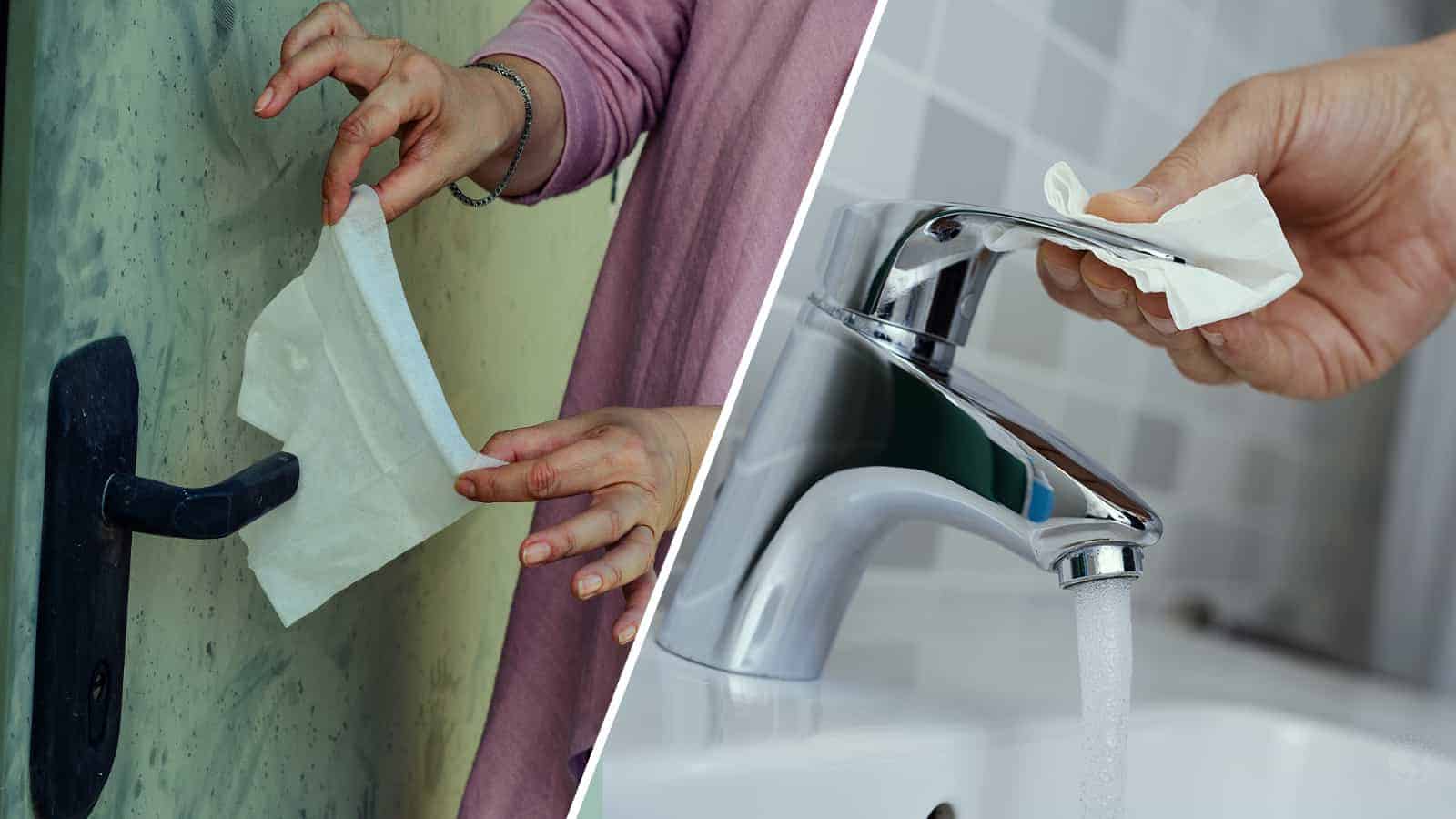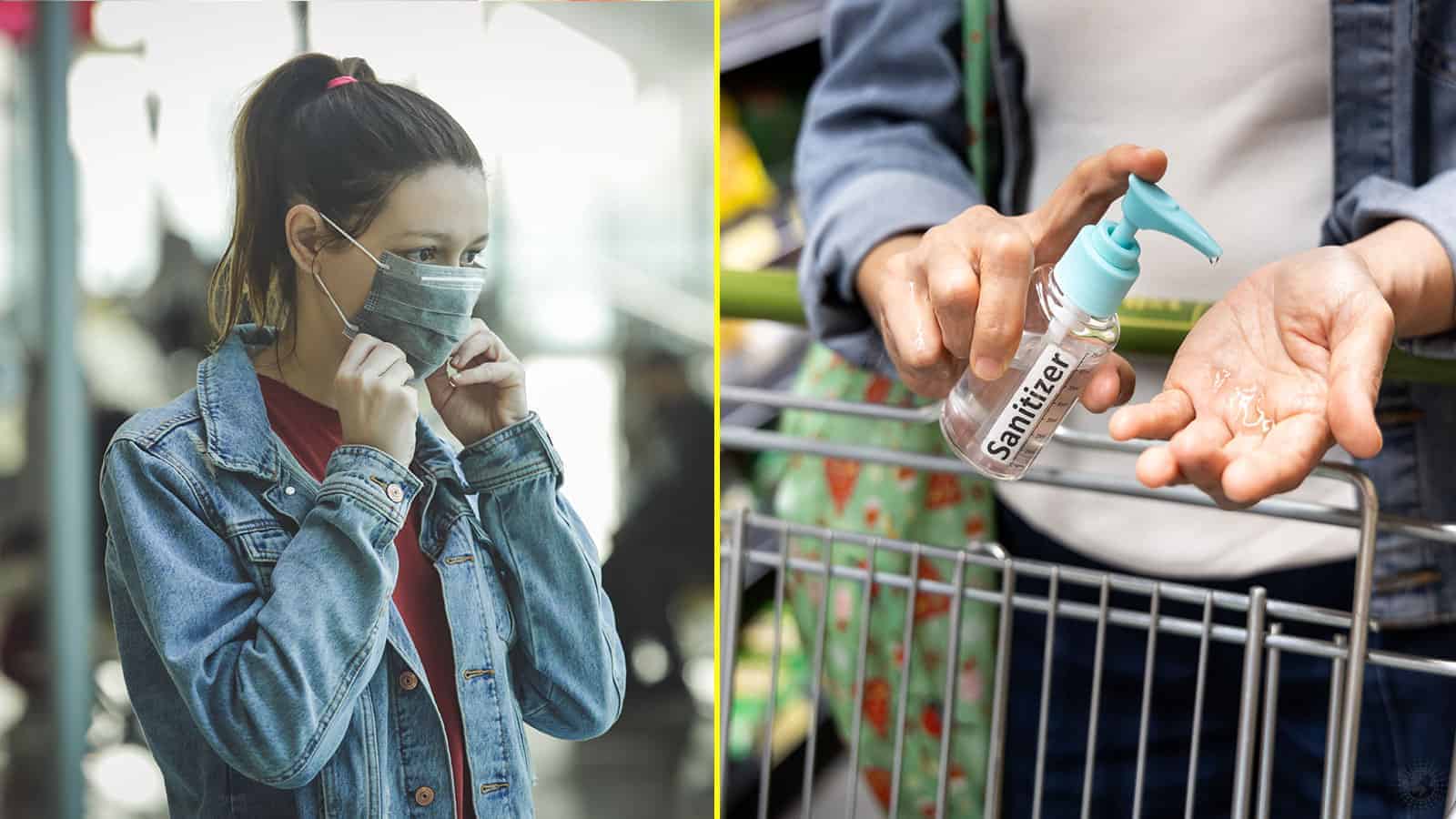It’s essential to wash your hands to avoid getting sick or transferring germs to others. Yet, an abnormal fear of germs isn’t healthy. Mysophobia is an obsessive fear of germs and contamination. This phobia is prevalent today, and the COVID-19 virus hasn’t helped. So, how do you know if you have mysophobia? Here are ten symptoms of this phobia you should know.
William A. Hammond first used mysophobia in 1879 to describe a patient with an obsessive-compulsive disorder (OCD) who repeatedly washed their hands. Mysophobia is a fear of contamination. Sometimes called Moral misophobia, those who have this phobia have a cleanliness ritual due to obsessive thoughts.
What causes mysophobia?
If you suffer from anxiety and depression or phobias run in your family, you’re more likely to develop mysophobia. It can be triggered by a traumatic event that causes you to focus in an unhealthy way on germs. Experts suggest that in the United States, there is an increasing focus on cleanliness, which could be contributing to more cases of mysophobia than in the past. Individuals who suffer from obsessive-compulsive disorder (OCD) are at a greater risk of having this phobia. Their constant repeated behavior, along with an over-focus on germs and cleanliness, cause them to wash their hands and clean their home repeatedly. Other things that may contribute to mysophobia include:
1 – Your genetics
If your family has a history of OCD behaviors, mental illness, or anxiety disorders, you are at a greater risk of getting mysophobia.
 2 – A traumatic experience
2 – A traumatic experience
Experiencing trauma as a child, such as a severe illness or an accident, may cause mysophobia later in life. But not everyone who has a childhood trauma gets mysophobia.
3 – Your environment
If you grew up in a family with a parent who had mysophobia, it could affect you. Having your parent wash and sanitize everything that’s been outside, or make you take a bath when you get home from school because of germs, may cause you to follow their example.
4 – If you experienced abuse or neglect
Another cause of phobias can be neglect or abuse. Abused kids often feel guilty and that whatever is happening to them is their fault. They may feel dirty and feel like they need to clean themselves from evil thoughts or actions.
What are the ten symptoms of mysophobia?
You might notice these ten symptoms if you have an unshakeable fear of germs.
1 – You avoid places that could have germs
If you struggle with this phobia, you may have a hard time going places that could harbor germs.
You’re informed enough to know that when people touch things like toilet seats, door handles, or countertops, they can spread germs. But your knowledge of germs becomes obsessive.
You can’t stop thinking about all the germs on that public bathroom toilet seat or the door handle at the grocery store. Your thoughts grow so big that you avoid going to places. Or if you must go out, you’ll continuously wash your hands to prevent contamination.
2 – Constantly washing your hands
Studies show that people with OCD conditions like mysophobia have differences in the frontal cortex and subcortical parts of their brain. These differences lead to compulsive behaviors. Researchers say they want to understand better what these differences occur. If you have mysophobia, cleanliness rules your life.
You’ll take extra measures such as taking frequent showers, obsessively washing your hands or using hand sanitizer, examining your food or drink for contamination.
3 – Won’t shake hands with people
Fear of germs prevents you from hugging people, shaking their hands, or patting them on the back. When someone reaches out to shake your hand prior, you pull back. This phobia affects your social life.
When your co-workers invite you to grab a beer with them after work, you decline for fear of getting contaminated from touching the bar, the beer glass, or having someone sit too close to you. You feel a never-ending pressure to stay clean.
4 – Avoid crowds of people
Like not touching people, this phobia keeps you from going to church, attending your son’s basketball games, or hanging out with friends at a restaurant. You fear touching things, but you are afraid of breathing the same air as a crowd of people.
5 – Refuse to pet dog or cats
If you own a pet, you’ll struggle with obsessive fears of contamination from your pet or contaminating by your pet. Your mind runs wild with worry about things like:
- Can you get sick from getting some dog poop on your hands when you clean up after your dog?
- Can you get sick if your cat sits on a rug, couch, or chair?
- Will you get sick if your dog gets up on your bed?
- Could your cat have a deadly illness that you can catch?
- Can you get sick if you touch your dog’s mouth?
- Will your cat’s food give you germs?
- Should your dog stay off the grass outside to prevent them from bringing in the dirt?
- If your cat licks you, will you get sick?
Fears of contaminating your pet include:
- What if I make my pet sick when I feed them?
- What if the water I give my cat has chemicals in it?
- Should I take my cat outside, or will they get sick?
- If I have the flu, can I give it to my cat?
- Will my dirty clothing make my dog sick?
- If I don’t wash my hands enough, will my cat get sick?
If you don’t own a pet, you’ll be afraid to touch your neighbor or friend’s pet for fear of getting sick from them.
6 – Fear of your kids getting contaminated
When you struggle with a fear of germs, raising kids can be difficult. You may worry when a family member or friend wants to hold your baby. Once your kids are in school, you’ll worry about them getting contaminated by their classmates, or at the playground or on the bus.
You may be overprotective, keeping them inside and making them wash their hands all the time. Having a phobia is hard enough, let alone trying to care for a child. Getting the help you need for your phobia will help you parent your kids not to pass your fears to your kids.
7 – Won’t share personal things
Fear of germs can cause you to refuse to share anything personal with your partner, kids, or friends. You may refuse to share a bowl of chips with your partner. If your sister asks to borrow your brush, you’ll refuse out of fear of getting germs. You won’t let anyone touch the remote because you’re worried about getting sick from them.
8 – Constantly sanitizing your home or work area
Germs are your enemy when you have mysophobia, but your fears aren’t limited to germ contamination. You’ll have a long list of things that you worry could contaminate you. Things such as:
- Blood
- Bodily fluids like sweat, saliva, mucus, and even tears
- Garbage
- Chemicals
- Broken glass
- Unclean looking people
- Stickiness
- Soaps that you don’t think will clean
- Dogs
- Cats
- Birds
- Mud
- Snow
- Rain
9 – Can’t touch dirt in the garden
Mysophobia prevents you from enjoying growing flowers or vegetables in the garden because you are afraid of touching the ground. You may desperately want to have a garden, and if you wear gloves, it may work. But if some dirt gets on your clothing, you will go inside and shower right away.
10 – Constant changing of clothing
Fear of germs will cause you to be obsessed with being clean all over, including wearing clean clothing. Obsessive clothes changing and even throwing out clothing you feel can’t be appropriately washed is common for those who have mysophobia.
Some physical symptoms of mysophobia
Those who have mysophobia may experience a physical reaction if they think they’ve been exposed to germs or contamination. These physical symptoms are similar to an anxiety attack. The symptoms include:
- Sweating
- Racing heart
- Chest tightness
- Feeling like it’s hard to breathe.
- Shaking
- Tight muscles
- Feeling light-headed
- Can’t relax
- Headache
- Nausea
- Vomiting
Treatment for mysophobia
Mysophobia is a treatable condition. If you think you may be suffering from a fear of germs, talk to your doctor or naturopath right away. They can help you get a proper diagnosis and treatment. The most common type of treatment for this condition is cognitive-behavior therapy or medication. Your doctor may suggest that you meet regularly with a therapist to help you walk through the fears your encounter. These meetings give you a chance to talk out your fears and obsessions with someone else and learn strategies to help you break free from your worries.
 Final thoughts on overcoming a fear of germs
Final thoughts on overcoming a fear of germs
Good handwashing is essential to prevent spreading germs or getting sick. But having an excessive fear of germs or contamination isn’t healthy. These fears can control your life and limit your ability to socialize and interact with your friends and family. Mysophobia, a fear of germs and contamination, is expected today, and the spreading of the COVID-19 virus hasn’t helped. If you think you may have mysophobia, be sure to talk with your medical care provider to get a proper diagnosis and find the help you need to enjoy your life free from fear.


















